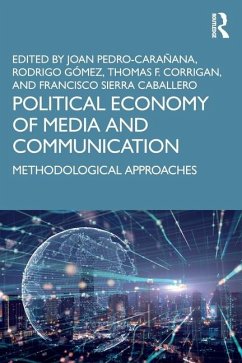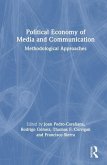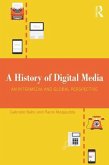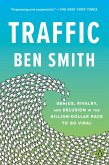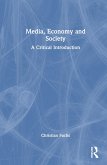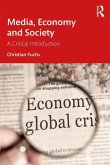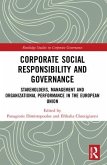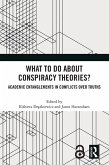The first book dedicated specifically to research methods in the political economy of media and communication, it provides a methodological toolkit to investigate the functioning of media, technology, and cultural industries in their historical, institutional, structural, and systemic contexts.
Featuring contributions from across the globe and a variety of methodological perspectives, this volume presents the state of the art in political economy of media and communication methods, articulating those methods with adjacent approaches, to study concentration of ownership and power, pluralism and diversity, regulation and public policies, governance, genderization and sustainability. This collection charts the methodological innovations critical political economists are adopting to analyse a rapidly transforming digital media landscape, exploring ideology, narratives, socio-analysis and praxis in communication with ethnographic and participatory approaches, as well as designs for quantitative and qualitative methods of textual, discourse and content analysis, network analyses, which consider power relations affecting communication, including intersectional oppressions and the new developments taking place in artificial intelligence.
An essential text for advanced undergraduates, postgraduate students, and researchers in the areas of media, cultural and communication studies, particularly those studying topics such as the political economy of media and/or communication, media and communication theory, and research methods.
Featuring contributions from across the globe and a variety of methodological perspectives, this volume presents the state of the art in political economy of media and communication methods, articulating those methods with adjacent approaches, to study concentration of ownership and power, pluralism and diversity, regulation and public policies, governance, genderization and sustainability. This collection charts the methodological innovations critical political economists are adopting to analyse a rapidly transforming digital media landscape, exploring ideology, narratives, socio-analysis and praxis in communication with ethnographic and participatory approaches, as well as designs for quantitative and qualitative methods of textual, discourse and content analysis, network analyses, which consider power relations affecting communication, including intersectional oppressions and the new developments taking place in artificial intelligence.
An essential text for advanced undergraduates, postgraduate students, and researchers in the areas of media, cultural and communication studies, particularly those studying topics such as the political economy of media and/or communication, media and communication theory, and research methods.
"This book provides an invaluable insight into the long-awaited answer to 'how do I research this?' from a critical Political Economy of Media and Communication perspective (PEMC). It allows not only to apply the key methodological and epistemological tenets of PEMC but also to counter its all too often misrepresentation by guardians of corporate power." - Ana I. Segovia Alonso, Associate Professor, Universidad Complutense de Madrid, Spain
"For anyone seeking a deeper understanding of PEC and its methodologies, this book is an indispensable companion. It delves into the types of sources PEC scholars rely on, the methodologies they employ for data collection, and how they skilfully employ history and theory to make sense of their findings. Furthermore, it provides a thoughtful examination of how political economists engage with complementary approaches and the philosophical assumptions guiding their choices. Its multifaceted exploration of the field's core components and evolving directions make it an essential read for both students and seasoned scholars. I enthusiastically recommend this book as an essential resource for anyone interested in the intricate world of political economy of communication (PEC)." - Benedetta Brevini, Associate Professor, University of Sydney and New York University
"For anyone seeking a deeper understanding of PEC and its methodologies, this book is an indispensable companion. It delves into the types of sources PEC scholars rely on, the methodologies they employ for data collection, and how they skilfully employ history and theory to make sense of their findings. Furthermore, it provides a thoughtful examination of how political economists engage with complementary approaches and the philosophical assumptions guiding their choices. Its multifaceted exploration of the field's core components and evolving directions make it an essential read for both students and seasoned scholars. I enthusiastically recommend this book as an essential resource for anyone interested in the intricate world of political economy of communication (PEC)." - Benedetta Brevini, Associate Professor, University of Sydney and New York University

